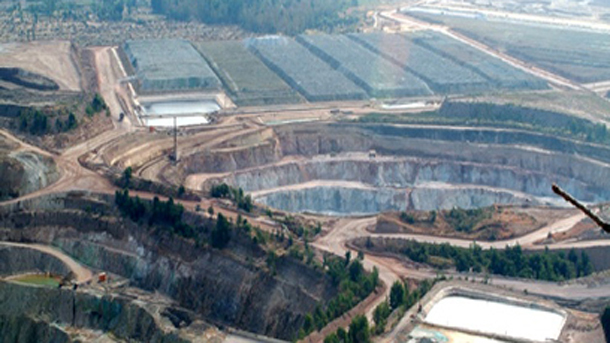Detained rights activist Wai Lu, who was seemingly arrested for participating in farmers’ protests in Sagaing Division, has been charged under Burma’s Religious Offenses Act.
“Family members were told by officers from Myinmu police station that he will be charged under Penal Code 295 and 295(a) for religious offenses,” said Thwae Thwae Win, a local activist in Sagaing Division.
Several of Wai Lu’s colleagues immediately protested the decision, saying he was not involved in any such action, and expressed skepticism that any such “religious” offense occurred.
“We question why Wai Lu has been charged under this law. We condemn the action and urge the authorities to free him as soon as possible,” Thwae Thwae Win said.
She said that Wai Lu’s family and friends are increasingly worried because they have not had a chance to meet him since his arrest and don’t know where he is being held.
“The family went to Monywa police station [near Myinmyu], but the police officers refused to tell them where Wai Lu was being held,” she said.
Wai Lu, a former political prisoner, became involved with farmers who have been fighting to win back their confiscated land from a copper mining company in the Latpadaung mountain range in Sagaing Division. He was apprehended by police on Aug. 31 while traveling back to his home in Rangoon.
Meanwhile, the protesting farmers have begun a signature campaign in order to submit an appeal to the Burmese president concerning what they claim is the unlawful seizure of their lands by the Chinese mining company Wan Bao in cooperation with the military-backed firm Union of Myanmar Economic Holdings Ltd (UMEHL), which are jointly developing the copper mining venture.
The farmers are demanding: adequate compensation; the return of their lands; an end to forced relocations; and a stop to the mining project, which they say is a threat to the environment.
More than 7,800 acres of land from 26 villages in the Sarlingyi Township area have been confiscated since the joint-venture began in 2011. Farmers began airing their disquiet at protests near the Wan Bao Company office beginning on July 2 this year. Since then, more and more local villagers have joined the farmers’ protests.
Tensions rose on Wednesday as 500 to 600 protesters were stopped by police as they marched along the Monywa-Pathein Highway and burned effigies of three coffins which they said represented the copper mine and the two investing companies.
UMEHL recently told journalists that it had paid compensation of 5,200 kyat (US $60) per acre to farmers for the confiscated farmland in April 2011. The company maintains that the farmers have only now changed their minds and want their farmland back because they have no other livelihoods other than farming.
Local protests against the mine continued into August with more civic society groups demanding a halt to the project on environmental grounds. NGOs say the nearby Kyay Sin and Sabae mountains have been decimated by copper mining.
Copper mining in the area started in 1980 with joint ventures between former Burmese Ministry of Mining-1 and various investors including Canada-based Ivanhoe Mines.

















